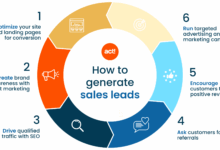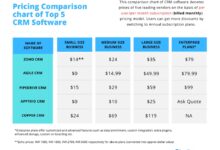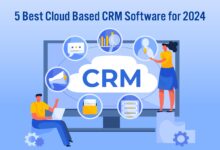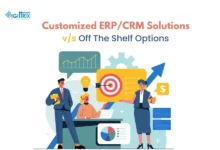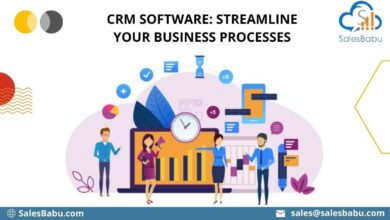Top CRM For Customer Support: Enhancing Customer Relationships
Top CRM for Customer Support plays a crucial role in improving customer relationships and streamlining support services, offering businesses a competitive edge in today’s market.
Importance of CRM in Customer Support
Customer Relationship Management (CRM) systems play a crucial role in enhancing customer support services by providing businesses with a centralized platform to manage customer interactions and data effectively.
Role of CRM Systems in Enhancing Customer Support
- CRM software helps in organizing and tracking customer inquiries, complaints, and feedback, allowing support teams to provide timely and personalized responses.
- By maintaining a comprehensive database of customer information, CRM systems enable businesses to understand customer preferences, purchase history, and communication preferences.
- CRM tools facilitate seamless communication between different departments within an organization, ensuring a cohesive approach to resolving customer issues.
Examples of Companies Benefiting from CRM for Customer Support
Companies like Zappos and Amazon have successfully leveraged CRM systems to deliver exceptional customer support experiences by streamlining processes and personalizing interactions based on customer data.
Step-by-Step Guide to Implementing CRM for Customer Support in a Small Business
- Evaluate your customer support needs and objectives.
- Select a CRM software that aligns with your business requirements.
- Import existing customer data into the CRM system.
- Train your team on how to use the CRM software effectively.
- Customize the CRM system to tailor it to your customer support processes.
- Monitor and analyze customer interactions to continuously improve support services.
Key Features to Look for in CRM Software for Customer Support
- Integration with communication channels like email, phone, and social media.
- Automated ticketing and workflow management for efficient issue resolution.
- Reporting and analytics capabilities to track support performance and customer satisfaction metrics.
- Customizable dashboards and reports for personalized insights into customer interactions.
Comparison Table: CRM Systems for Customer Support vs. General CRM Systems
| Features | CRM Systems for Customer Support | General CRM Systems |
|---|---|---|
| Communication Channels | Integrated with multiple channels for customer support. | May not have specialized support for various communication channels. |
| Issue Tracking | Focus on ticketing and workflow management for support teams. | May offer generic task management features. |
| Analytics | Specific reporting and analytics for customer support performance. | General reporting capabilities for sales, marketing, and customer service. |
Key Features to Look for in CRM for Customer Support
When choosing a CRM for customer support, it is crucial to consider several key features that can enhance the efficiency and effectiveness of your support processes.
Essential Features
- Ticketing Systems: A CRM with robust ticketing systems allows you to track and prioritize customer inquiries, ensuring timely responses and resolutions.
- Contact Management: Effective contact management tools enable you to organize customer information, interactions, and history for personalized support.
- Reporting Tools: Comprehensive reporting tools help you analyze support metrics, identify trends, and make data-driven decisions to improve customer satisfaction.
Integration Capabilities
Integration with other tools such as helpdesk software, communication platforms, and e-commerce systems is essential for providing seamless customer support across various channels.
CRM Platforms with Customer Support Features
Some CRM platforms known for their exceptional customer support features include Zendesk, Freshdesk, and Salesforce Service Cloud.
Customization Options
Customization options in a CRM allow you to tailor the system to meet specific customer support needs, such as creating custom fields, workflows, and reports.
Automation Features
Automation features in CRM streamline repetitive tasks, such as ticket routing, response generation, and follow-up reminders, improving efficiency and response times.
Common Pitfalls to Avoid
- Choosing a CRM with overly complex features that are not relevant to your support processes.
- Ignoring scalability and flexibility, leading to difficulties in adapting the CRM to changing support requirements.
- Underestimating the importance of user training and adoption, resulting in underutilization of CRM capabilities.
Benefits of Using CRM for Customer Support
CRM systems offer a wide range of benefits for businesses looking to enhance their customer support processes. From automation to personalized service, CRM plays a crucial role in improving customer satisfaction and overall efficiency.
Role of Automation in CRM Systems
Automation is key in CRM systems for streamlining customer support processes. By automating repetitive tasks such as ticket routing, response generation, and follow-up reminders, businesses can save time and resources while ensuring a more efficient and consistent support experience for customers.
Tracking Customer Interactions and History
CRM helps in tracking customer interactions and history, allowing support agents to have a complete view of a customer’s journey with the company. This enables more personalized service, as agents can quickly access past interactions, preferences, and issues to provide a tailored and efficient support experience.
Specific CRM Features for Enhanced Customer Support Efficiency
Specific CRM features such as ticketing systems, knowledge bases, customer portals, and real-time chat capabilities are designed to enhance customer support efficiency. These features enable agents to quickly resolve customer issues, provide self-service options, and offer seamless communication channels for a better support experience.
Impact on Small Businesses vs Large Corporations
While both small businesses and large corporations can benefit from using CRM for customer support, the impact may vary in terms of scale. Small businesses can leverage CRM to streamline support processes, improve response times, and build stronger customer relationships, while large corporations can use CRM to manage a higher volume of customer interactions, track performance metrics, and optimize support strategies on a larger scale.
Importance of Data Analytics in CRM
Data analytics play a crucial role in CRM for understanding customer behavior and preferences. By analyzing customer data, businesses can gain valuable insights into customer trends, identify opportunities for improvement, and make data-driven decisions to enhance the overall customer support experience.
Top CRM Software Options for Customer Support
When it comes to choosing a CRM software for customer support, there are several popular options available in the market. Let’s compare and analyze some of the top CRM software like Salesforce, HubSpot, and Zoho in terms of their functionalities for customer support.
Salesforce
Salesforce is one of the most widely used CRM software in the industry, known for its robust features and scalability. Here are some pros and cons of using Salesforce for customer support:
- Pros: Salesforce offers a wide range of customization options, advanced reporting features, and seamless integration with other business tools.
- Cons: The complexity of Salesforce can be overwhelming for some users, and the cost of implementation and maintenance might be high for small businesses.
User reviews praise Salesforce for its comprehensive customer support functionalities and efficient ticket management system.
HubSpot
HubSpot is another popular CRM software that is known for its user-friendly interface and inbound marketing capabilities. Here’s a look at the pros and cons of using HubSpot for customer support:
- Pros: HubSpot offers easy integration with marketing tools, live chat support, and a user-friendly interface that requires minimal training.
- Cons: The free version of HubSpot has limited features, and the pricing for advanced features can be expensive for small businesses.
User reviews highlight HubSpot’s intuitive interface and seamless communication features for customer support teams.
Zoho
Zoho CRM is a budget-friendly option that provides a wide range of features for customer support teams. Here are the pros and cons of using Zoho for customer support:
- Pros: Zoho offers affordable pricing plans, easy customization options, and integration with other Zoho applications for a seamless workflow.
- Cons: Some users may find the reporting capabilities of Zoho CRM to be limited compared to other CRM software, and the user interface may not be as modern as competitors.
User reviews appreciate Zoho’s affordability and ease of use for small to medium-sized businesses looking for a reliable CRM solution for customer support.
CRM Implementation Strategies for Customer Support
Implementing CRM systems effectively is crucial for enhancing customer support operations. By following best practices and overcoming challenges, businesses can ensure a smooth transition to a new CRM system for their customer support teams.
Best Practices for Implementing CRM Systems
When implementing CRM systems for customer support, it is essential to:
- Define clear objectives and goals for the CRM implementation.
- Involve all relevant stakeholders in the planning and decision-making process.
- Provide comprehensive training to employees to ensure successful adoption of the CRM system.
- Regularly monitor and evaluate the performance of the CRM system to make necessary adjustments.
Challenges in Integrating CRM for Customer Support
Businesses may face challenges such as:
- Resistance to change from employees who are accustomed to existing systems.
- Data migration issues when transferring information to the new CRM system.
- Integration problems with other software and tools used in customer support.
Tips for Ensuring a Smooth Transition
To ensure a smooth transition to a new CRM system for customer support teams, consider:
- Communicating effectively with employees about the benefits of the new CRM system.
- Providing ongoing support and training to address any challenges or questions that arise.
- Testing the CRM system thoroughly before full implementation to identify and resolve any issues.
Integrating AI and Automation in CRM for Customer Support
AI and automation play a crucial role in optimizing customer support processes within CRM systems. By leveraging artificial intelligence and automation, businesses can enhance efficiency, improve response times, and deliver personalized customer experiences.
Impact of AI Chatbots and Automation on Customer Service Efficiency
AI chatbots and automation have revolutionized customer service by providing instant responses to queries, handling routine tasks, and routing inquiries to the right department. This significantly reduces wait times and enhances overall customer satisfaction.
Examples of AI-Powered Features in CRM Systems
- AI-powered chatbots for real-time customer interactions
- Automated ticket routing for faster query resolution
- Predictive analytics for proactive issue resolution
Roles of AI and Automation in Handling Customer Inquiries
AI is primarily used for handling repetitive tasks and providing quick responses, while automation streamlines workflows and ensures seamless customer interactions. Together, they work cohesively to deliver efficient customer support.
Configuring AI Chatbots within CRM Platforms
- Identify common customer queries and create predefined responses.
- Train the AI chatbot using historical data and customer interactions.
- Integrate the AI chatbot within the CRM system for seamless communication.
- Monitor and analyze chatbot interactions to improve accuracy and effectiveness.
Data Analytics Capabilities of AI Integrated CRM Systems
AI integrated CRM systems offer advanced data analytics tools that help businesses gain insights into customer behavior, preferences, and trends. By analyzing this data, companies can tailor their customer support strategies for better outcomes.
Customization Options in CRM for Tailored Customer Support
Customization features in CRM play a crucial role in meeting specific customer support needs. Businesses can leverage these customization options to enhance the overall customer experience by tailoring the CRM system to their unique requirements. This not only improves customer satisfaction but also helps in building long-term relationships with clients. Here are some key points to consider:
Importance of Customization Features in CRM
Customization options in CRM allow businesses to personalize their customer support processes according to their specific requirements. This ensures that the CRM system aligns perfectly with the organization’s goals and objectives, leading to more efficient and effective customer support strategies.
Enhancing Customer Experience through CRM Customization
- Personalized Communication: Customizing CRM enables businesses to tailor their communication with customers based on their preferences and history, leading to more meaningful interactions.
- Streamlined Processes: By customizing workflows and data fields, businesses can streamline their customer support processes, making it easier to provide quick and accurate solutions to customer queries.
- Improved Reporting and Analytics: Customized CRM systems can provide detailed insights into customer behavior and preferences, allowing businesses to make data-driven decisions to enhance the overall customer experience.
Examples of Tailored CRM Solutions
One example of a tailored CRM solution is Salesforce, which offers extensive customization options to businesses of all sizes. Through Salesforce’s platform, companies can create personalized customer journeys, automate processes, and deliver exceptional customer support.
Another example is Zendesk, which allows businesses to customize their support ticketing system, knowledge base, and reporting features to meet their specific customer support needs. This level of customization helps in delivering efficient and personalized customer service.
Data Security and Privacy Considerations in CRM for Customer Support
Data security and privacy are critical aspects when it comes to managing customer information within CRM systems. Protecting sensitive data is essential to maintain trust with customers and comply with regulations.
Significance of Data Security Measures
Implementing robust data security measures in CRM systems is crucial to safeguard customer information from unauthorized access or breaches. Encryption, access controls, and regular security audits are essential components to ensure data protection.
Compliance Requirements
CRM systems must adhere to data protection regulations such as GDPR (General Data Protection Regulation) and CCPA (California Consumer Privacy Act). These regulations outline the obligations and rights related to customer data privacy, requiring businesses to handle data responsibly and securely.
Best Practices for Data Privacy and Security
– Regularly update CRM software to patch security vulnerabilities.
– Implement multi-factor authentication to enhance login security.
– Limit access to customer data based on roles and responsibilities.
– Conduct employee training on data security best practices.
– Regularly audit and monitor CRM systems for any suspicious activities or breaches.
Training and Onboarding Processes for CRM in Customer Support
Implementing a comprehensive training and onboarding process for CRM software is crucial for ensuring that new customer support team members can effectively utilize the system to enhance customer service quality.
Setting Up CRM Software for New Team Members
- Provide access to CRM system and login credentials.
- Offer a detailed walkthrough of the CRM interface and key features.
- Assign practice tasks to familiarize team members with using CRM for customer interactions.
Role of Personalized Training Modules
- Create customized training modules based on individual learning needs and skill levels.
- Offer hands-on training sessions with real customer scenarios to improve CRM utilization.
- Provide ongoing support and feedback to address any challenges or questions during training.
Real-life Scenarios and Improved Customer Satisfaction
- After receiving CRM training, agents can resolve customer inquiries more efficiently.
- Improved access to customer data leads to personalized interactions and higher satisfaction rates.
- Enhanced reporting capabilities allow for better tracking of customer issues and resolutions.
Checklist for Monitoring Employee Progress
- Evaluate completion of training modules and understanding of CRM functionalities.
- Assess customer interactions post-training to measure application of CRM knowledge.
- Provide additional support or retraining as needed to fill any gaps in understanding.
Benefits of Gamification in CRM Training
- Incorporating game elements like quizzes and challenges can make training more engaging.
- Rewarding achievements and progress can motivate employees to actively participate in training.
- Increases knowledge retention and application through interactive and fun learning experiences.
Integrating CRM Training with Customer Support Processes
- Align CRM training with existing support workflows to ensure seamless integration.
- Provide resources and guides to help employees apply CRM knowledge in their daily tasks.
- Continuously update training materials to reflect changes in CRM features or processes.
Mobile Accessibility and CRM for Customer Support
Mobile accessibility is becoming increasingly important in the realm of customer support, as it allows agents to access critical information and tools on-the-go. This flexibility can lead to improved efficiency, faster response times, and ultimately, better customer satisfaction.
Advantages of Mobile-Friendly CRM Applications
- Agents can access customer data, communication history, and support tickets from anywhere, at any time, increasing responsiveness.
- Mobile CRM apps enable agents to provide real-time updates and assistance to customers, even when they are away from their desks.
- Improved flexibility and accessibility lead to enhanced productivity and the ability to handle customer inquiries promptly.
Improving Remote Support Capabilities with Mobile CRM Access
- Remote agents can stay connected and collaborate effectively with in-house teams through mobile CRM platforms.
- Access to CRM systems on mobile devices ensures that agents can address customer issues promptly, regardless of their location.
- Enhanced remote support capabilities enable businesses to provide seamless customer service experiences, irrespective of physical distances.
CRM Platforms with Robust Mobile Features for Customer Support
- Salesforce Service Cloud offers a mobile app that allows agents to manage cases, access knowledge articles, and collaborate with team members on-the-go.
- Zoho Desk provides a mobile interface for agents to respond to customer queries, update tickets, and track support metrics from their smartphones or tablets.
- Zendesk’s mobile app enables agents to view customer information, respond to tickets, and stay connected with customers through integrated messaging channels.
Reporting and Analytics Capabilities in CRM for Customer Support
Reporting tools play a crucial role in analyzing customer support performance metrics within CRM systems. These tools provide valuable insights into the effectiveness of customer support strategies and help in making data-driven decisions to enhance overall customer satisfaction.
The Role of Analytics Features in CRM
Analytics features within CRM systems enable businesses to delve deep into customer support data and identify trends and patterns that can impact customer interactions. By analyzing key metrics such as response times, resolution rates, customer feedback, and agent performance, organizations can pinpoint areas for improvement and optimize their support processes.
Examples of Insightful Reports Generated by CRM Systems
- Customer Satisfaction Reports: CRM systems can generate reports on customer satisfaction levels based on feedback collected through surveys or interactions. These reports help in understanding customer sentiment and making necessary adjustments to improve service quality.
- Agent Performance Reports: By analyzing metrics like average handling time, first call resolution rate, and customer ratings, CRM systems can generate reports on agent performance. This allows managers to identify top-performing agents and provide additional training or support to those who may need improvement.
- Trend Analysis Reports: CRM analytics can track trends over time, such as common customer issues, peak support hours, or seasonal fluctuations in support volume. These reports help in forecasting demand, allocating resources effectively, and staying proactive in addressing customer needs.
Customer Feedback Integration in CRM for Enhanced Support
Customer feedback is a crucial component in enhancing customer support services within CRM systems. By capturing and utilizing feedback effectively, businesses can improve their overall customer satisfaction and loyalty. Here, we will delve into the significance of integrating customer feedback into CRM systems and how it can lead to better support resolutions.
Importance of Capturing Customer Feedback in CRM
- Feedback provides valuable insights into customer preferences, pain points, and expectations.
- Helps in identifying areas for improvement in products, services, and support processes.
- Allows businesses to address issues proactively and enhance customer experience.
Leveraging Customer Feedback for Enhanced Support
- Companies like Amazon and Airbnb have utilized customer feedback within CRM to tailor support services and drive customer loyalty.
- By analyzing feedback data, businesses can personalize interactions, resolve issues promptly, and build stronger relationships with customers.
Setting Up Automated Feedback Collection
Automated feedback collection tools can be integrated into CRM systems to streamline the process of gathering customer input.
- Configure feedback forms, surveys, and rating systems within the CRM platform for seamless data collection.
- Utilize triggers and workflows to automate feedback requests based on customer interactions or transactions.
Analyzing and Categorizing Feedback Data
- Segment feedback data based on categories such as product quality, service delivery, and overall experience.
- Utilize sentiment analysis and keyword tagging to identify trends, patterns, and common issues from customer feedback.
- Generate reports and dashboards to visualize feedback insights and prioritize actions for continuous improvement.
Role of AI and Machine Learning in Feedback Processing
- AI algorithms can analyze large volumes of feedback data quickly and accurately to extract meaningful insights.
- Machine learning models can predict customer behavior, sentiment, and preferences based on historical feedback patterns.
- AI-powered chatbots can respond to feedback in real-time, escalating complex issues to human agents for resolution.
Future Trends in CRM for Customer Support
With the rapidly changing landscape of customer support, it is essential to explore the future trends in CRM that are shaping the way businesses interact with their customers. Let’s delve into some key developments that are revolutionizing customer support through CRM systems.
Chatbots and Virtual Assistants in Customer Interactions
In recent years, chatbots and virtual assistants have emerged as powerful tools in enhancing customer interactions within CRM systems. These AI-powered technologies can provide instant responses to customer queries, streamline support processes, and offer personalized assistance round the clock. By leveraging chatbots and virtual assistants, businesses can improve efficiency, reduce response times, and deliver a seamless customer experience.
Data Analytics and Machine Learning for Predictive Insights
The role of data analytics and machine learning in CRM is becoming increasingly crucial for predicting customer behavior and preferences. By analyzing vast amounts of customer data, businesses can gain valuable insights into customer trends, anticipate their needs, and deliver personalized services. Machine learning algorithms can help in identifying patterns, segmenting customers, and automating decision-making processes, ultimately leading to enhanced customer satisfaction and loyalty.
Omnichannel Communication for Seamless Support Experiences
Omnichannel communication is a key trend in CRM that focuses on providing a unified experience across multiple channels such as phone, email, chat, social media, and more. By integrating all communication channels into a single platform, businesses can offer consistent support, enable smooth transitions between channels, and ensure a seamless customer journey. Omnichannel communication not only enhances customer satisfaction but also improves operational efficiency and strengthens customer relationships.
Successful CRM Implementations for Improved Customer Satisfaction
Several businesses have successfully implemented CRM systems to significantly enhance customer satisfaction and loyalty. Companies like Amazon, Zappos, and Salesforce have utilized CRM to personalize customer interactions, streamline support processes, and deliver exceptional service. These successful implementations showcase the importance of leveraging CRM tools effectively to build long-lasting relationships with customers and drive business growth.
Closing Summary
In conclusion, adopting the right CRM software for customer support can lead to enhanced customer satisfaction, increased operational efficiency, and ultimately, business growth.
